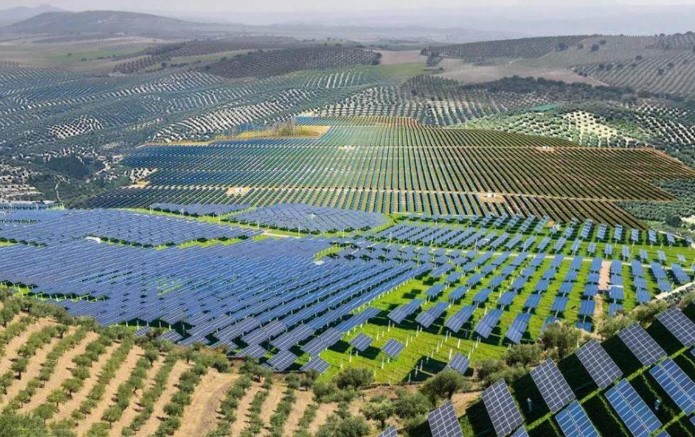The Spanish olive oil sector, a cornerstone of the national agriculture and culture, is in a deep crisis. While the government under Pedro Sánchez has massively increased imports of Tunisian olive oil, hundreds of thousands of olive trees are being uprooted in Jaén for a photovoltaic megaproject. This development is causing outrage and existential fears among farmers in Andalusia.
The figures speak for themselves: Between January and February 2025, Spain imported 11,877 tons of Tunisian olive oil. This represents an increase of almost 130% compared to the 5,172 tons in the same period of 2023. These data, published by DataComex (subordinate to the Ministry of Economy, Trade and Business), show an alarming trend.
At the same time, olive oil prices at the source have plummeted by 54% in just one year, even though the 2024 harvest was significantly better than the catastrophic previous season. Local producers are confronted with unfair practices that manipulate the market. Juan Luis Ávila, Secretary General of COAG Jaén and head of the olive sector of COAG Andalusia, criticizes the duty-free import from Tunisia (a quota of 56,700 tons per year for the entire EU) as a weapon to undermine the value of Spanish oil.
Large marketers use the low prices of foreign oil as an excuse not to buy domestic products, leading to an automatic price drop at the source. Ávila laments the lack of transparency and suspects implicit agreements to push prices down. COAG has already filed a formal complaint with the National Commission for Markets and Competition (CNMC) regarding possible anti-competitive practices and price fixing.
Destruction of Olive Groves for Photovoltaic Projects in Jaén
Parallel to the rising imports, another catastrophe threatens the olive sector: the massive destruction of olive groves in the Campiña Norte de Jaén. Here, hundreds of thousands of olive trees are to make way for a photovoltaic megaproject, funded by foreign capital. Dozens of families are being expropriated to make way for this energy infrastructure.
Local farmers vehemently protest against the passivity of both the central government and the Andalusian government, whom they accuse of allowing this “ecological and economic disgrace.” The loss of these olive trees not only means enormous economic damage for the affected families but also an irreversible loss of cultural heritage and scenic beauty.
The Future of Spanish Olive Oil
The combination of exploding imports and the destruction of domestic cultivation areas poses a serious threat to the future of Spanish olive oil. Farmers urgently demand measures to protect their livelihoods and ensure fair market conditions. The question remains how long the Spanish olive sector can withstand this double pressure and what long-term consequences this policy will have for agriculture and the rural regions of Andalusia.




